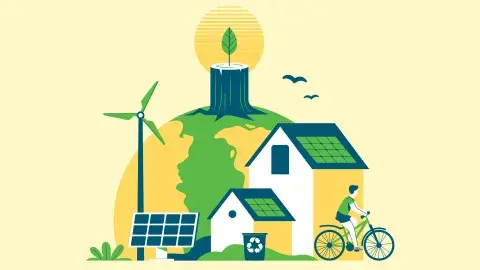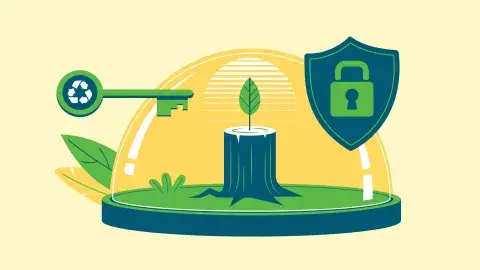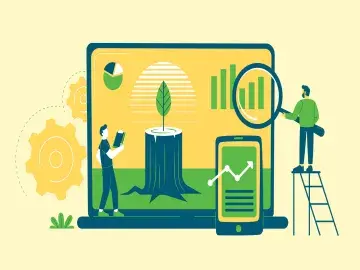Faith and Environmental Governance
It is increasingly recognised that faith leaders and faith-based organizations (FBOs) are essential contributors towards attaining the Sustainable Development Goals (SDGs) and addressing environmental and climatic crises. Acknowledging this, the United Nations Environment Programme (UNEP) launched the Faith for Earth Initiative to strategically engage with FBOs, mobilise greater faith-inspired environmental action, scale-up faith actors’ capacities and catalyse greater synergies between them and other stakeholders. This short, self-paced, e-learning course, focusing on environmental governance, forms part of this commitment.
The world today faces a triple planetary crisis consisting of climate change, nature and biodiversity loss and pollution and waste. Effective environmental governance is more essential than ever to address the different dimensions of these immense environmental challenges. Good environmental governance requires the active participation of all stakeholders and sectors of society, at all levels and in all countries. This course focuses on the role of faith actors in processes of environmental governance, from local to global levels, and ensuring that the unique qualities, capabilties and perspectives that faith actors bring are increasingly recognised and leveraged.
KAICIID launched the FAITH4SDGS Project. More information and material can be found here: https://www.kaiciid.org/content/sustainable-development-goals-sdgs
This course is designed for religious leaders, faith-based organizations, civil society, non-governmental organizations, UN agencies, other multilateral institutions, government officials, policy and decision-makers and individuals interested in this subject. Whilst the focus is on faith actors, faith perspectives and faith-led action, this course seeks to contribute to building synergies amongst different stakeholders, highlighting the value of engaging with faith actors in addressing this challenge.
The goals of this course are to:
- Build the capacity of faith actors for their effective participation in environmental governance at all levels, from their local contexts to global forums.
- Contribute to ensuring that faith actors are recognised and empowered as important partners and stakeholders in processes of environmental governance.
At the end of this course, participants will:
- Understand environmental governance, its relation to sustainable development and the SDGs, and the need to strengthen governance networks and cooperation between different stakeholders.
- Recognise the various ways, mechanisms, frameworks and strategies designed to establish and improve environmental governance, with a particular emphasis on the role of the UN system.
- Have knowledge of different faith perspectives relating to environmental governance and the important role faith actors can play in galvanising momentum to implement and improve it.
- Have seen examples of activities already underway by faith actors, where inspiration can be drawn.
- Have guidance and resources on how to improve faith engagement in processes of environmental governance
Since its inception in 1972, the United Nations Environment Programme (UNEP) has been the global authority that sets the environmental agenda, promotes the coherent implementation of the environmental dimension of sustainable development within the United Nations system and serves as an authoritative advocate for the global environment. UNEP’s mission is to provide leadership and encourage partnerships in caring for the environment by inspiring, informing and enabling nations and peoples to improve their quality of life without compromising that of future generations. UNEP works closely with its 193 Member States and representatives from civil society, businesses and other major groups and stakeholders to address environmental challenges through the UN Environment Assembly, the world’s highest-level decision-making body on the environment.
This interactive digital course is specifically designed for busy professionals who do not have time to take the longer, moderated eight-module course on ‘Faith, Environment and Climate Change’. They can now select the relevant thematic topics and modules and learn on the go. Administered through a Massive Open Online Course (MOOC) platform, this short course takes around two hours to complete and can be taken anywhere, anytime, at a pace that suits and from a phone or a computer.
Modern and updated browsers.
A Certificate of Completion will be issued to participants who achieve a minimum total score of 70%.
E-Learning in IRD designed for the general public


